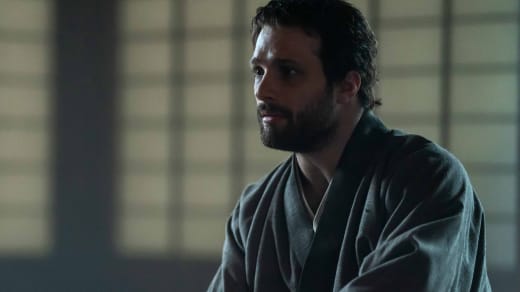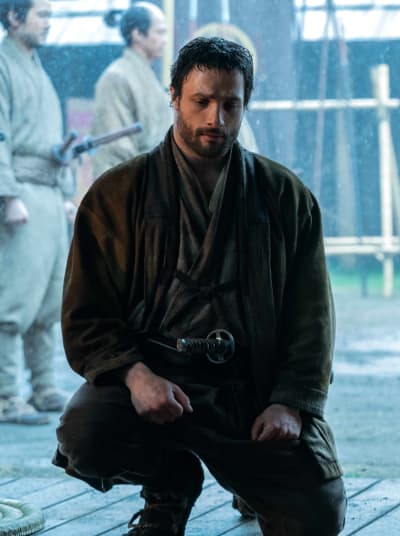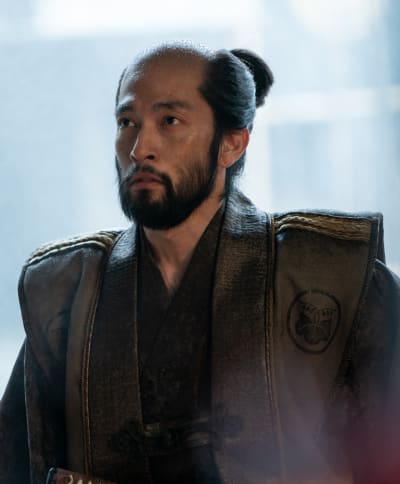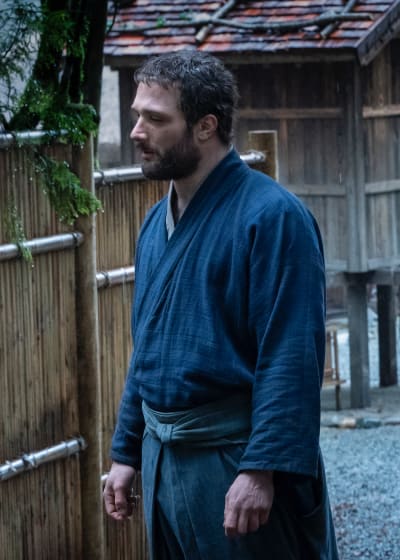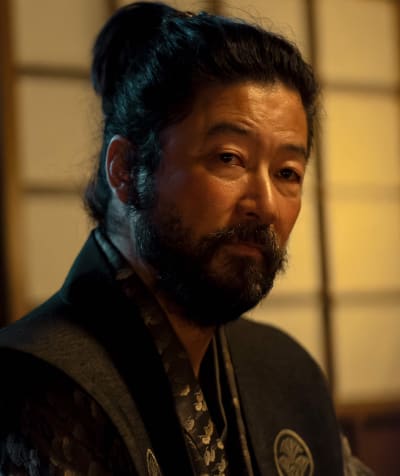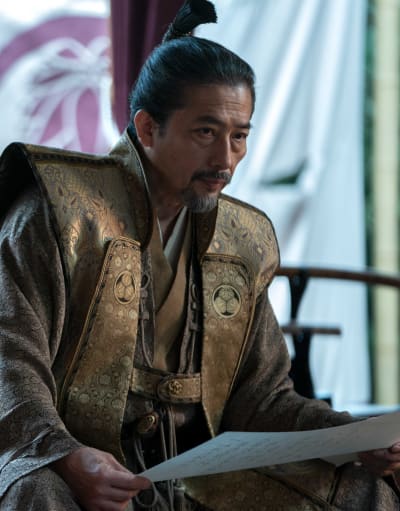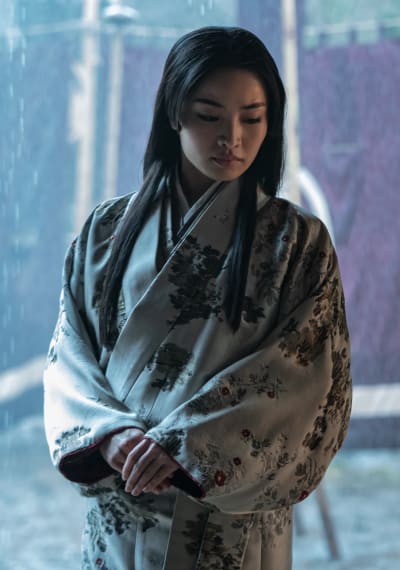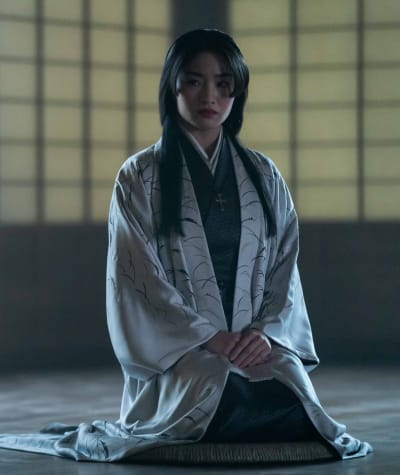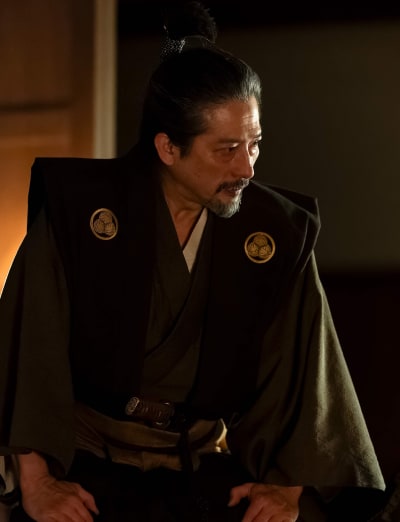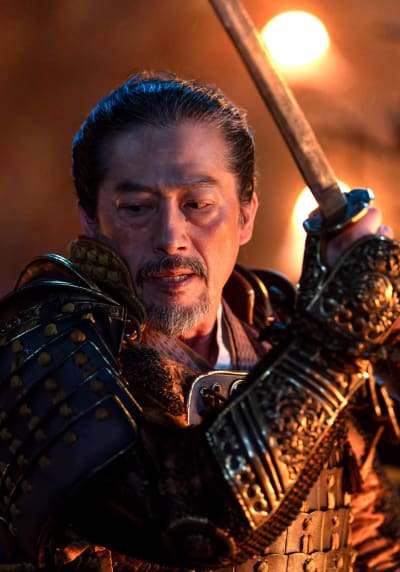Shogun Dodges White Savior Tropes at Every Turn, Despite Some Critics' Claims
 Thomas Godwin
at
.
Thomas Godwin
at
.
Shogun has skyrocketed to the top of the streaming ratings, a little over a month since its initial two-episode release, with millions of views in its first week.
This wasn't an easy feat considering the debut success of other FX or Hulu hard-hitters, such as The Bear, The Handmaid's Tale, and The Great.
Immediate comparisons to Game of Thrones were inevitable, given the show's heavy political intrigues set in 17th-century feudal Japan.
As with most popular debuts that delve heavily into cultures foreign to our own, some critics pointed to the white savior trope, drawing lines between Shogun and Dances with Wolves, The Last Samurai, and even Avatar.
Fortunately, those lines failed to meet reality.
The sympathetic, apologetic nature of the white savior plot doesn't stand up to scrutiny within Shogun's carefully constructed mimicry of real-life Japan in the 1600s.
The attention to detail is bar none, with creators Justin Mark and Rachel Kondo (a husband and wife team), alongside Hiroyuki Sanada of John Wick: Chapter 4 fame, indulging in a painstaking recreation process.
The "stranger in a strange culture or land" archetype is often an integral storytelling device.
Often enough, the Graham Wellingtons of the world are inexplicably immersed into an alien and sometimes hostile environment, surrounded by average thinkers, bumbling supporting characters, and a savage, oppressive antagonist. You know how the story unfolds from there.
The white protagonist follows the typical hero's journey, elevating the lesser races around him and ultimately saving them from either an outside force or their self-destruction.
Shogun embraces a more realistic vision of an ancient time, when most of the horizon was filled with lush greenery and mountains layered in blankets of mist, rather than the dull, dead metal and plastic machinery of modern industry.
It also reflects a time when almost every nation, Japan included, was leery of foreigners.
Before sakoku (a shogunate policy of trade isolation), Japan historically held a loose trade and religious relationship with Portuguese merchants and missionaries.
This is the timeframe in which Shogun falls, just as the English make their way into the picture, manufacturing a collision between multiple cultures, religions, and ways of life.
In the series, John Blackthorne (Cosmo Jarvis) is the Anjin (Pilot) of the Dutch warship/trading ship, the Erasmus. Shogun Season 1 Episode 1 opens with the Erasmus at a turbulent time, both within and without.
As a storm batters the ship, the captain finds the nearest exit to the afterlife, with Blackthorne assuming technical command.
A title card sets the scene, with the Erasmus eventually floundering on the sharp rocks of Ajiro, on Japan's shoreline, before being captured by the local samurai.
We immediately see that the showrunners are taking things in a direction apart from the Shogun novel by James Clavell, the inspiration for the show.
Instead of the white outsider stumbling into a world of indigent peasants, there is a cultural collision of both hilarity and profound savagery. The latter term is used quite a bit, and for good reason. Instead of embracing the white savior trope, Shogun instead opts for a more inclusive tone.
Unfortunately, 'inclusion' comes with its own caveat. While the captured, emaciated sailors (Blackthorne included) are foul-mouthed, unwashed, shambling corpses in all but name, the Japanese are cultured, sophisticated, respectful, and solemn.
But don't let the guise fool you. Soon, Kashigi Yabushige, the ruler of this local fief, is boiling a man alive. Blackthorne witnesses another man suddenly and viciously beheaded for the crime of standing in place for too long.
What could have been another rehash of Dances with Wolves, the Japanese version, is instead an intense revelation of the astonishing differences in ancient, mostly isolated cultures, along with the cruel similarities shared by all human beings over the centuries.
In feudal Japan, it's best to mind your manners, or you'll find yourself eight inches shorter in a hurry. Instead of immediately rising up the ranks in a foreign society, Blackthorne spends most of his time jumping back and forth between astonished befuddlement and terror.
Jarvis does an excellent job of conveying the horror of being taken prisoner by a foreign society, of which little to nothing is known; his every movement and gesture is potentially perceived as a killing insult.
The language is entirely foreign to him, and his life and death hang in the balance while he stands inside a cone of silence and confusion.
One scene in particular sets the tone for the entire first episode and beyond. As Blackthorne kneels before Yabushige, a Portuguese interpreter is brought to the fore. This interpreter speaks mangled Japanese at best and has nothing but a ferocious antipathy towards the prisoner.
As Blackthorne tries to say his piece, the interpreter angrily translates, often inserting his own biases and hilariously (if not for the situation) terrible Japanese.
Eventually, Blackthorne descends into bouts of vulgarity and violence, born of the confusion and fear of the moment. It's a crystal-clear view into the impact of two outsiders, foreign to each other, dealing with another foreign party whose interests are mostly hidden.
The first episode spends most of its time with Blackthorne but alternates between him and Lord Yoshi Toranaga, one of the five regents that rule Japan as a council.
This council exists at the behest of the late Taiko, as the heir is too young to rule in his own right. This is where the show's political intrigue picks up. Again, the white savior trope is deftly turned aside.
Instead of a backward civilization needing saving, we witness a complex power struggle within a cultured, sophisticated society with its own advanced architecture and solemn, aesthetic beauty.
Four of the five regents are set to vote on the impeachment of Toranaga, arguably the series' chief or, at the very least, co-equal protagonist.
In this case, an impeachment led by the Council of Regents means death. Toranaga, brilliantly played by Hiroyuki Sanada, is essentially the captive of Ishido Kazunari (Takehiro Asano), one of the regents who also happens to have the remainder of the council under his influence.
We're also introduced to Toda Mariko (Anna Sawai), a Toranaga loyalist and recent Catholic convert.
While Toranaga and Mariko form the political foundation of the series, they also join Blackthorne as the three protagonists around which the entire series revolves.
Instead of sticking with the PoV of Blackthorne, like the book, the series delves deeply into the viewpoints of all three, bringing 17th-century Japan to roaring life in the process.
One thing the series and the book share closely is the world that surrounds these characters. It is lush, vibrant, and teeming with life via characters, the buildings of the time, the rituals, and the colliding religious belief systems.
While Toranaga and Mariko navigate an in-depth political conflict, Blackthorne, as a Protestant, faces his archenemy in the Catholic church. Soon, however, Blackthorne finds himself within the presence and influence of Toranaga and Mariko.
Though Blackthorne exhibits an affinity for helping to save the day, he also falls victim to the political machinations of Toranaga and the romantic influence of Mariko.
Anna Sawai is fun to watch as she ties the threads of Toranaga's political intrigues together, navigates her home life against a verbally abusive and dismissive husband (Buntaro), and serves as a translator for Toranaga.
As the series progresses, the intense and delicate political situation is balanced by dramatic sub-plots and Blackthorne's feelings towards the Portuguese Catholic presence.
Though Blackthorne is a significant character throughout, his elevation in Japan's unique but familiar feudal system is entirely due to the good graces of Toranaga.
Not only does this work within the story's fiction, but it also makes sense from a realistic standpoint. Feudal Japan was not some lost society, wandering in and out of caves, wielding clubs as weapons, and fingerpainting their country's history on rock walls.
They were an established, complex society with internal and external struggles. Blackthorne is an outsider looking in, owing his rise to their generosity.
Toranaga is no fool; he recognizes the value of what Blachthorne brings to the table and uses him like a chess piece in his survival game.
His connection with Blackthorne leads to mutual respect, which pays dividends in Shogun Season 1 Episode 5, as Blackthorne comes to Toranaga's aid out of allegiance rather than from the angle of a superior to an inferior.
From the standpoint of character growth, the white savior is, again, neatly deflected. Instead, we witness a fascinating arc that transcends the Hollywood of yesterday's propensity towards the white salvation archetype.
Blackthorne goes from an alternately confused and shocked outsider to one that embraces many of the qualities that made Japan the mystical, impressive empire of its day.
Mariko balances a journey from the housewife, living under the yoke of a husband who clearly despises her, to a keen political ally while embracing and navigating a world outside the stricture of Buntaro's shadow.
Toranaga plays the reluctant warrior, refusing the path that may lead to Shogun only to acquiesce reluctantly.
His instincts are top-notch, and his designs are complex and fun to watch. By the end of episode ten, there is no feeling of watching a society saved from its faulty designs by a white, honorable hero.
Though the vast engine of the entertainment industry once played the white savior card to both apologize to and sympathize with various cultures, it was always done at the expense of that culture.
It's hard to apologize to someone while calling them a wasteful dullard with no hope of self-salvation. That said, Shogun does something that many of today's popular and unpopular shows fail to do.
It manufactures a world that's loosely based on historical reality, free of the white savior trope, without falling victim to becoming a preachy caricature of modern political arguments.
It entertains without insulting the audience's intelligence or the culture of another country and its people.
Thomas Godwin is a staff writer for TV Fanatic. You can follow him on X

